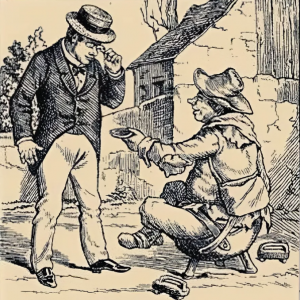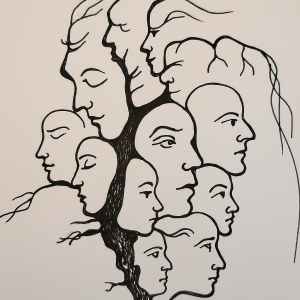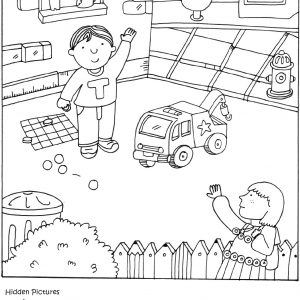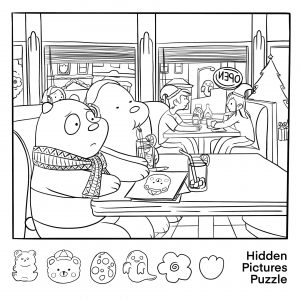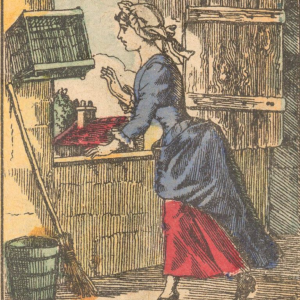Spot the Hidden Object: A Fun Way to Sharpen Your Focus and Mental Agility
Ever come across a puzzle or an image where you’re asked to spot the hidden object? They’re more than just fun—they’re a clever way to boost your brainpower, increase your attention to detail, and provide a welcome break from the everyday grind. Take this amusing image of a woman applying lipstick in front of a mirror, surrounded by quirky objects. On the surface, it’s a lighthearted, comical scene. But hidden within this playful setting is a fun brain teaser that challenges you to identify items that don’t quite belong.
In this article, we’re going to explore why these types of puzzles are so effective in enhancing cognitive skills and why taking time for these playful activities is more beneficial than it might seem. Let’s dive into how this simple task of spotting hidden objects can be a game-changer for your focus, mental agility, and even stress relief.
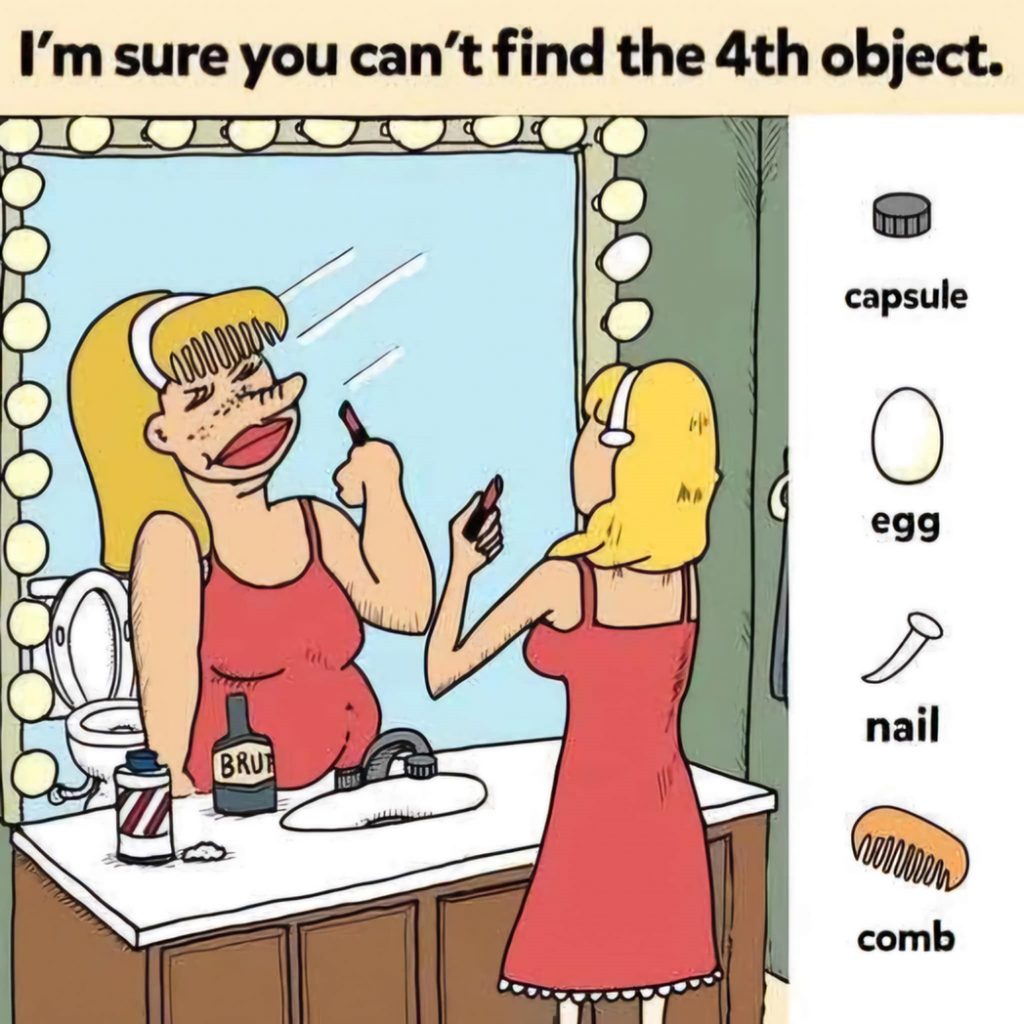
The Power of Hidden Object Puzzles: Engaging Your Brain
At first glance, hidden object puzzles may seem like a casual pastime. However, the benefits they offer go beyond mere entertainment. These puzzles are brain workouts that engage multiple cognitive functions. Let’s break down how participating in these challenges can have long-lasting benefits for your mental health and cognitive performance.
Improved Attention to Detail
Finding a hidden object in a busy scene requires intense focus and attention to detail. As you search for the elusive item, your brain is actively filtering out distractions and honing in on the smaller, often overlooked details of the image. This skill is transferable to many areas of life, from work to personal relationships. Practicing this kind of focus helps you become more attuned to the subtleties around you, enhancing your ability to notice the finer points in any given situation.
Enhancing Memory and Cognitive Agility
Hidden object puzzles are also a great way to improve memory. As you scan the image for hidden items, your brain must retain information about what you’ve already checked and what you still need to search for. This strengthens short-term memory and boosts cognitive agility. Plus, as you repeat these types of activities, you train your brain to become quicker and more accurate, enhancing your ability to process information efficiently.
Boosting Problem-Solving Skills
Beyond attention and memory, hidden object puzzles require problem-solving skills. As you look for items that are hidden within the scene, you need to think critically about where the objects might be and how they fit into the environment. This exercise sharpens your analytical thinking and teaches you to approach challenges from different angles.

The Fun Behind the Image: A Closer Look at the Scene
Now, let’s focus on this specific image of the woman getting ready in front of a bathroom mirror. This playful scene is more than just a snapshot of daily life; it’s an opportunity to engage with the brain and explore the small, hidden elements within the picture. But what exactly are we looking for?
The Challenge: What’s Hidden in Plain Sight?
In this image, you’re tasked with finding four objects that don’t belong in the scene, as highlighted by the text. The objects are cleverly integrated into the background, such as a cap, a comb, an egg, and a nail. Each of these items is a bit out of place in a bathroom setting, which is precisely what makes the challenge fun. Finding these hidden objects requires you to focus your attention on the smallest details while keeping the larger context of the image in mind.
Where Are They?
Let’s take a moment to walk through the scene. The woman is applying lipstick, standing in front of a large mirror. The room has a clean, minimalist aesthetic, with a bottle on the counter, a small vase, and other everyday items. But hidden within the busy background are objects like the cap and the comb. These are small, everyday items that are often easy to overlook unless you know exactly where to look. The trick is to break the image down into smaller segments, searching for areas that might hide these odd items.

The Educational Value: More Than Just Fun
While these puzzles are designed for entertainment, they also have significant educational value, especially for kids. Here’s how solving hidden object puzzles can benefit children.
Developing Concentration and Focus
For children, finding hidden objects is a great way to teach concentration. These puzzles help kids focus on a single task for an extended period, which is a vital skill for learning and problem-solving. As they scan the scene for clues, they train their brain to concentrate on one thing at a time, which is an essential foundation for academic success.
Enhancing Visual Recognition and Spatial Awareness
Children also improve their visual recognition and spatial awareness by solving these puzzles. As they identify objects within a scene, they learn how to relate shapes, colors, and patterns to each other. This enhances their ability to recognize and process visual information, an important skill for reading, math, and other areas of learning.
Boosting Vocabulary and Concept Understanding
For younger children, hidden object puzzles are a fun way to learn new words and concepts. As they search for items like “egg” or “comb,” they not only reinforce their vocabulary but also begin to understand how these objects fit within the context of a larger scene. This makes learning more interactive and enjoyable.
Engaging for Adults: How Hidden Object Puzzles Can Be a Stress Reliever
While hidden object puzzles are often associated with children, adults can benefit greatly from these activities as well. Let’s explore why they are such effective stress relievers for grown-ups.
A Fun Mental Break
After a long day at work or school, it can be hard to relax. However, engaging with a hidden object puzzle provides a much-needed mental break. By focusing on the task at hand and immersing yourself in the search for hidden objects, you give your brain a chance to switch off from daily stresses. It’s a quick, fun way to unwind without the need for a screen.
A Way to Tap into Creativity
Adults who color, draw, or engage in other artistic activities are often more relaxed and creative. Hidden object puzzles, like the one in this image, offer an outlet for creative thinking. They allow you to approach a problem from different perspectives, and the process of searching for hidden elements requires lateral thinking and a bit of imagination.
Improving Mental Sharpness
Just as physical exercise helps keep your body fit, mental exercises like hidden object puzzles help keep your brain sharp. By challenging yourself with these puzzles regularly, you help maintain cognitive agility and improve mental focus, memory, and problem-solving skills. This type of mental workout can even help delay cognitive decline as we age.

Creative Twists: Making Hidden Object Puzzles Even More Fun
Want to take your hidden object experience to the next level? Here are some creative ways to make this challenge even more exciting.
Set a Time Limit
Challenge yourself or others by setting a time limit to find all the hidden objects. This adds an element of excitement and competition, turning the puzzle into a race against the clock. It’s a fun way to increase the challenge while improving your speed and focus.
Create Your Own Puzzle
Why not create your own hidden object puzzle? Draw a scene and hide objects within it for others to find. This is a fantastic exercise for practicing creativity, attention to detail, and artistic skills. Plus, it allows you to design puzzles tailored to your interests.
Turn It Into a Group Activity
Invite friends or family to join in on the fun. Solving hidden object puzzles as a group encourages teamwork, communication, and a shared sense of accomplishment. Working together also enhances problem-solving skills as you combine different perspectives to locate the hidden items.
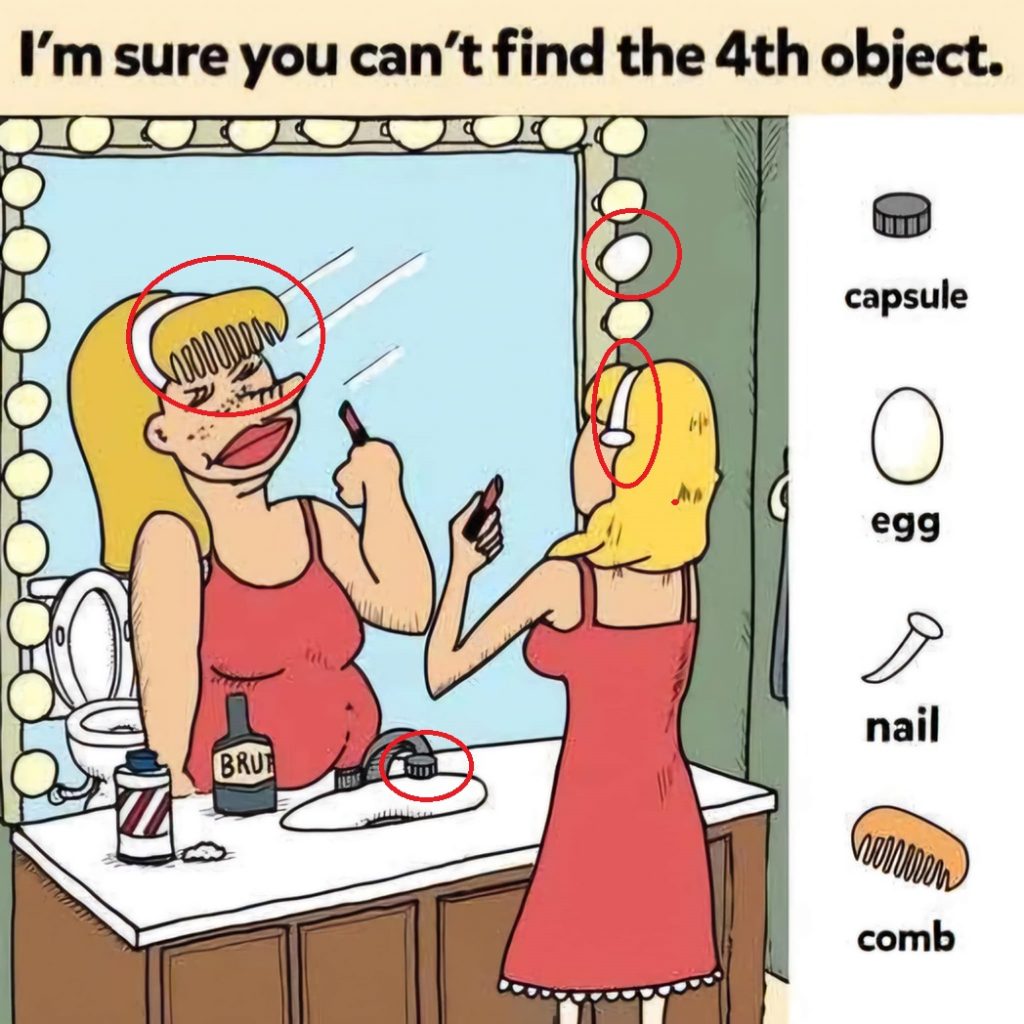
Conclusion: More Than Just a Fun Challenge
Hidden object puzzles, like the one in this playful scene, are far more than just a fun diversion. They’re powerful tools for boosting mental agility, enhancing focus, and providing a healthy break from the demands of everyday life. Whether you’re an adult seeking relaxation or a child looking to develop important cognitive skills, these puzzles offer something for everyone.
So next time you come across a puzzle like this, take a moment to enjoy the process of finding the hidden objects. You’ll not only improve your brainpower but also enjoy a little creative fun along the way. Happy puzzling!
